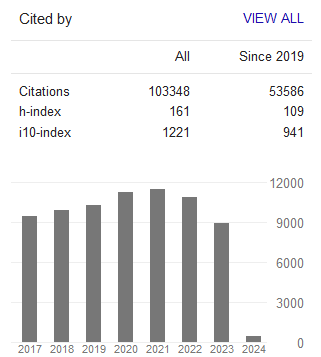The Interference Effect of Perceived CSR on Relationship Model of Brand Image
- Shwu-Ing Wu
Abstract
In recent years, both business enterprises and society at large have begun to assign significant value to corporate social responsibility (CSR), and consumer health has come to be an important factor in this regard. This study therefore explores whether different levels of awareness of CSR result in differences in the relationships among brand image, brand attitude, satisfaction and repurchase intention, as well as their intensity. Fast-food chain MOS Burger is used as a case study. In addition, the interference effect of consumer’s awareness of CSR on the brand image relational model is analyzed.
In order to achieve the above goal, a consumer survey was conducted in Taiwan, from which 535 valid questionnaires were collected. The average value of consumer awareness of CSR was used to categorize respondents into two groups. SEM (structural equation modeling) analysis showed that the impact of experiential image on brand attitude was significantly stronger among consumers with low awareness of CSR, as compared to those who were highly aware of CSR. This suggested that CSR has a partial interference effect. These results can serve as reference for companies in making CSR-related decisions and formulating brand strategies.
- Full Text:
 PDF
PDF
- DOI:10.5539/ijbm.v10n10p35
Journal Metrics
Google-based Impact Factor (2023): 0.86
h-index(2023): 152
i10-index(2023): 1168

Index
- Academic Journals Database
- AIDEA list (Italian Academy of Business Administration)
- ANVUR (Italian National Agency for the Evaluation of Universities and Research Institutes)
- Berkeley Library
- CNKI Scholar
- COPAC
- EBSCOhost
- Electronic Journals Library
- Elektronische Zeitschriftenbibliothek (EZB)
- EuroPub Database
- Excellence in Research for Australia (ERA)
- Genamics JournalSeek
- GETIT@YALE (Yale University Library)
- IBZ Online
- JournalTOCs
- Library and Archives Canada
- LOCKSS
- MIAR
- National Library of Australia
- Norwegian Centre for Research Data (NSD)
- PKP Open Archives Harvester
- Publons
- Qualis/CAPES
- RePEc
- ROAD
- Scilit
- SHERPA/RoMEO
- Standard Periodical Directory
- Universe Digital Library
- UoS Library
- WorldCat
- ZBW-German National Library of Economics
Contact
- Stephen LeeEditorial Assistant
- ijbm@ccsenet.org
